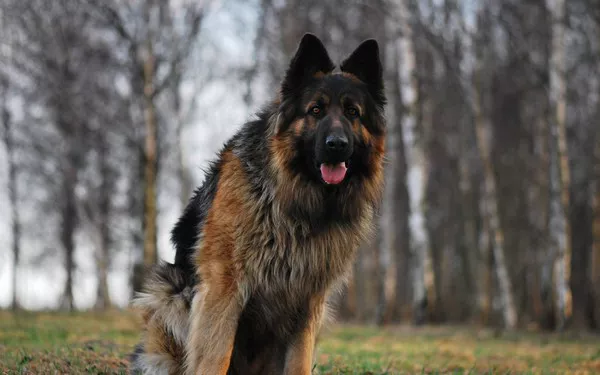Guinea pigs, also known as cavies, are among the most popular small pets in the world. They are gentle, sociable creatures that can bring a lot of joy to a household. If you own a guinea pig or are considering adopting one, it’s important to understand their lifespan and what it means for their health and care as they age. One common question among guinea pig owners is: “Is a 7-year-old guinea pig old?” In this comprehensive guide, we will explore the answer in detail, using easy-to-understand language suitable for beginners.
Understanding the Guinea Pig Lifespan
Before we can determine whether a 7-year-old guinea pig is old, we need to understand the average lifespan of a guinea pig. Generally, guinea pigs live between 5 to 7 years. Some may live longer with excellent care, occasionally reaching 8 years or more, though this is less common.
Several factors influence a guinea pig’s lifespan:
- Breed: Some breeds may have slightly longer or shorter lifespans.
- Genetics: Like people, guinea pigs inherit certain traits from their parents, including longevity.
- Diet and Nutrition: Proper feeding is essential for a long, healthy life.
- Living Environment: Cleanliness, space, and enrichment affect wellbeing.
- Healthcare: Regular vet visits and attention to illness or injury can extend life.
- Companionship: Guinea pigs are social animals; having a companion can improve their quality of life and possibly their lifespan.
So, if your guinea pig is 7 years old, it is at the upper end of the average lifespan, and yes, your guinea pig is considered a senior or elderly pet.
What to Expect from a Senior Guinea Pig
As guinea pigs age, they go through changes similar to aging humans or other pets. Here are some common signs of aging you might observe in a 7-year-old guinea pig:
- Decreased Activity: Older guinea pigs may move more slowly and sleep more often.
- Weight Changes: Some may lose weight due to dental issues or reduced appetite.
- Mobility Issues: Arthritis or stiff joints can make movement harder.
- Changes in Fur and Skin: Coat may thin, and skin can become dry.
- Vision or Hearing Loss: You may notice that your guinea pig does not respond to sights or sounds as they once did.
- Behavioral Changes: They might become more subdued or, conversely, more vocal if uncomfortable.
Recognizing these signs can help you adapt your care to support your aging pet.
How to Care for an Elderly Guinea Pig
Caring for a senior guinea pig involves some adjustments to keep them comfortable and healthy. Here are practical steps to consider:
Diet and Nutrition
- Maintain a Balanced Diet: Continue to offer unlimited hay, fresh vegetables, and vitamin C-rich foods. Monitor their eating habits closely.
- Dental Health: Older guinea pigs may suffer from overgrown teeth. Offer chew toys and ensure they are eating enough hay.
- Supplements: Consider consulting your vet about supplements for joint health or general wellness.
Environment
- Easy Access: Make sure food, water, and hiding places are easy to reach.
- Soft Bedding: Use soft, clean bedding to protect sensitive joints.
- Temperature Control: Keep them warm, as older guinea pigs are more sensitive to cold.
Social and Emotional Needs
- Companionship: If your guinea pig lives with another, monitor their interactions. Sometimes, younger companions may be too energetic for a senior.
- Gentle Handling: Be especially gentle when picking up or interacting with older guinea pigs.
- Enrichment: Offer low-energy activities to keep their mind engaged.
Veterinary Care
- Regular Check-Ups: Senior guinea pigs should see a vet at least twice a year.
- Monitor Health Closely: Watch for signs of illness such as weight loss, labored breathing, or changes in behavior.
Special Considerations for End-of-Life Care
If your guinea pig is 7 years old or older, it is wise to begin considering end-of-life care. This doesn’t mean your pet is about to pass away, but rather it is a proactive way to ensure their comfort.
- Pain Management: If your pet develops conditions like arthritis or tumors, your vet may recommend medications.
- Palliative Care: This involves maintaining quality of life through comfort-focused care rather than curative treatments.
- Euthanasia: In cases of severe illness or pain that cannot be managed, humane euthanasia may be the kindest option.
Having a plan and being emotionally prepared can help ease this difficult time.
Celebrating a Long Life
Reaching 7 years is a significant milestone for a guinea pig. It means you have likely provided excellent care and companionship. Celebrate your pet’s golden years by continuing to offer love and attention. Take photos, spend time together, and treasure the bond you have.
Senior guinea pigs often become more affectionate or attached to their owners. Enjoy these special moments and recognize that your pet is part of your family.
Conclusion
So, is a 7-year-old guinea pig old? Yes, it is considered a senior, possibly even elderly. However, age is not a disease. With proper care, attention, and veterinary support, your senior guinea pig can continue to enjoy life. Understanding the needs of an aging guinea pig helps ensure their final years are happy and healthy.
Guinea pigs bring joy, laughter, and warmth to our homes. As they age, they deserve our respect, compassion, and attentive care. By recognizing the signs of aging and adjusting how you care for them, you can help your guinea pig live a comfortable and fulfilling life well into old age.
If you’re new to guinea pig ownership, use this guide as a foundation. Whether your guinea pig is a baby or a senior, your love and attention will always be the most important part of their life.
Related Topics:






















